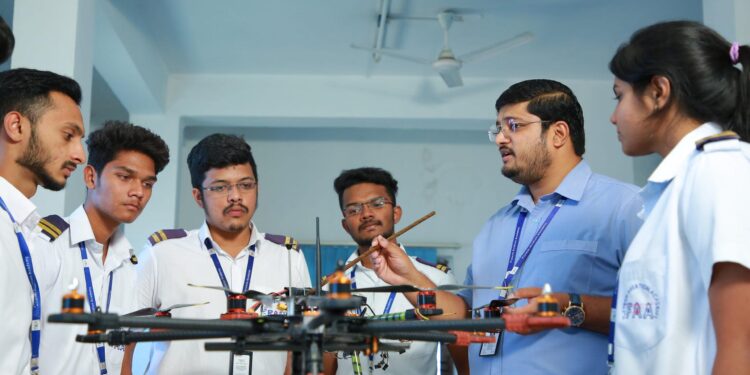Lithuania has launched a new drone training program aimed at young students residing near its eastern border with Russia. The initiative, designed to enhance technological skills and awareness among youth in the region, comes amid heightened security concerns and growing interest in unmanned aerial technologies. By integrating drone education into local schools, Lithuanian authorities hope to foster both practical expertise and a sense of vigilance in communities positioned on the frontline of regional geopolitical tensions.
Lithuania Launches Drone Training Program for Youth in Strategic Border Region
Lithuania’s latest initiative aims to empower young students living near its eastern frontier with Russia by equipping them with cutting-edge drone piloting skills. The program, designed in collaboration with local educational institutions and defense officials, offers hands-on training sessions covering navigation, aerial surveillance, and drone maintenance. Organizers emphasize the importance of fostering technological literacy while enhancing regional security awareness among the youth.
The curriculum not only focuses on practical drone operation but also explores topics such as:
- Basic principles of UAV technology
- Ethical use and safety protocols
- Applications in environmental monitoring and emergency response
By targeting teenagers in the strategically sensitive border areas, Lithuania hopes to develop a new generation capable of contributing to both civil and national security efforts. The program also envisions potential career pathways in technology and defense sectors for the participants.
| Course Module | Duration | Skills Gained |
|---|---|---|
| Introduction to Drones | 2 weeks | Basic flight control |
| Advanced Navigation | 3 weeks | GPS & mapping |
| Maintenance & Safety | 1 week | Drone upkeep & protocols |
Empowering Students with Advanced Technology Skills Amid Rising Regional Tensions
In an innovative response to escalating regional challenges, educational institutions near Lithuania’s border with Russia have initiated specialized drone training programs aimed at equipping young students with cutting-edge technological skills. This initiative not only fosters practical knowledge in unmanned aerial systems but also cultivates critical thinking, situational awareness, and problem-solving capabilities essential for the digital age. By integrating hands-on drone operation with lessons on safety protocols and data analysis, these programs prepare the next generation for opportunities in fields such as environmental monitoring, logistics, and security.
The curriculum highlights include:
- Flight mechanics and control systems to build foundational drone piloting skills
- Geospatial mapping techniques utilizing drone sensors for real-time data collection
- Ethical considerations and regulations governing drone usage in sensitive areas
| Skill | Age Group | Training Duration |
|---|---|---|
| Basic Drone Operation | 10-13 | 8 weeks |
| Advanced Navigation | 14-17 | 12 weeks |
| Data Interpretation & Safety | 15-18 | 10 weeks |
Recommendations for Expanding Drone Education to Strengthen National Security Awareness
To amplify the impact of drone education in bolstering national security awareness, it is essential to integrate comprehensive, hands-on curricula across schools in vulnerable border areas. Programs should emphasize practical drone piloting skills, real-time surveillance techniques, and cybersecurity awareness related to unmanned aerial systems. Collaborations with military experts and drone technology providers can enrich learning experiences, offering students unique insights into the strategic importance of drones in modern defense. By creating interactive workshops and simulation-based scenarios, students will gain firsthand understanding of border monitoring challenges, fostering a generation attuned to safeguarding sovereignty.
Furthermore, expanding drone education must involve community engagement and interdisciplinary approaches that link technology with geography, environmental monitoring, and data analytics. Educational authorities could roll out initiatives such as:
- Local drone competitions focused on surveillance accuracy and ethical usage
- Mentorship programs pairing students with defense sector professionals
- Seminars on drone legal frameworks and the geopolitical landscape
| Key Educational Focus | Expected Outcome |
|---|---|
| Drone Navigation & Control | Improved operational proficiency |
| Security Protocols | Heightened awareness of national threats |
| Data Collection & Analysis | Enhanced situational intelligence skills |
In Summary
As Lithuania takes proactive steps to enhance national security through innovative education programs, the introduction of drone training for young students near the Russian border underscores the country’s commitment to preparedness in a complex geopolitical landscape. This initiative not only equips the next generation with valuable technological skills but also reflects broader efforts to safeguard sovereignty amid ongoing regional tensions. Observers will be closely watching how such programs evolve and influence both local communities and national defense strategies moving forward.
















